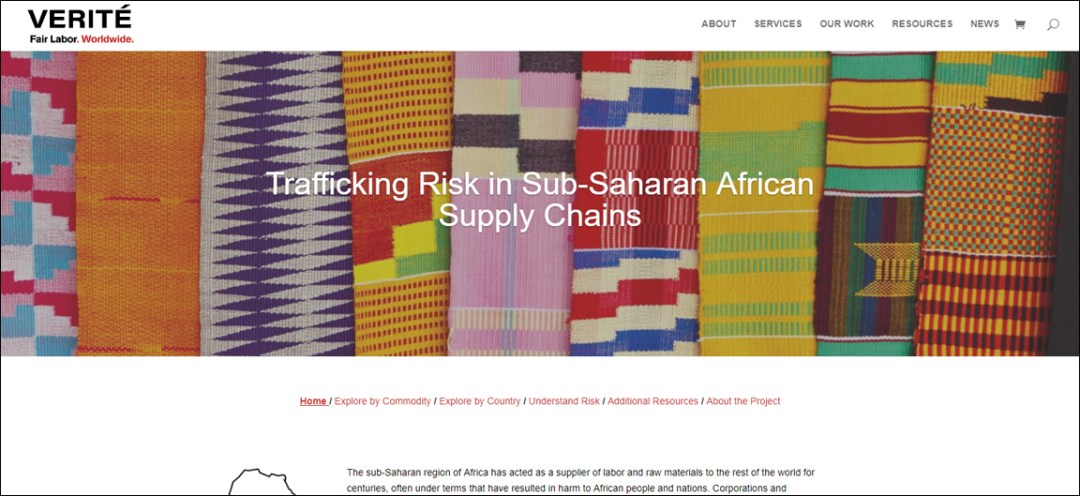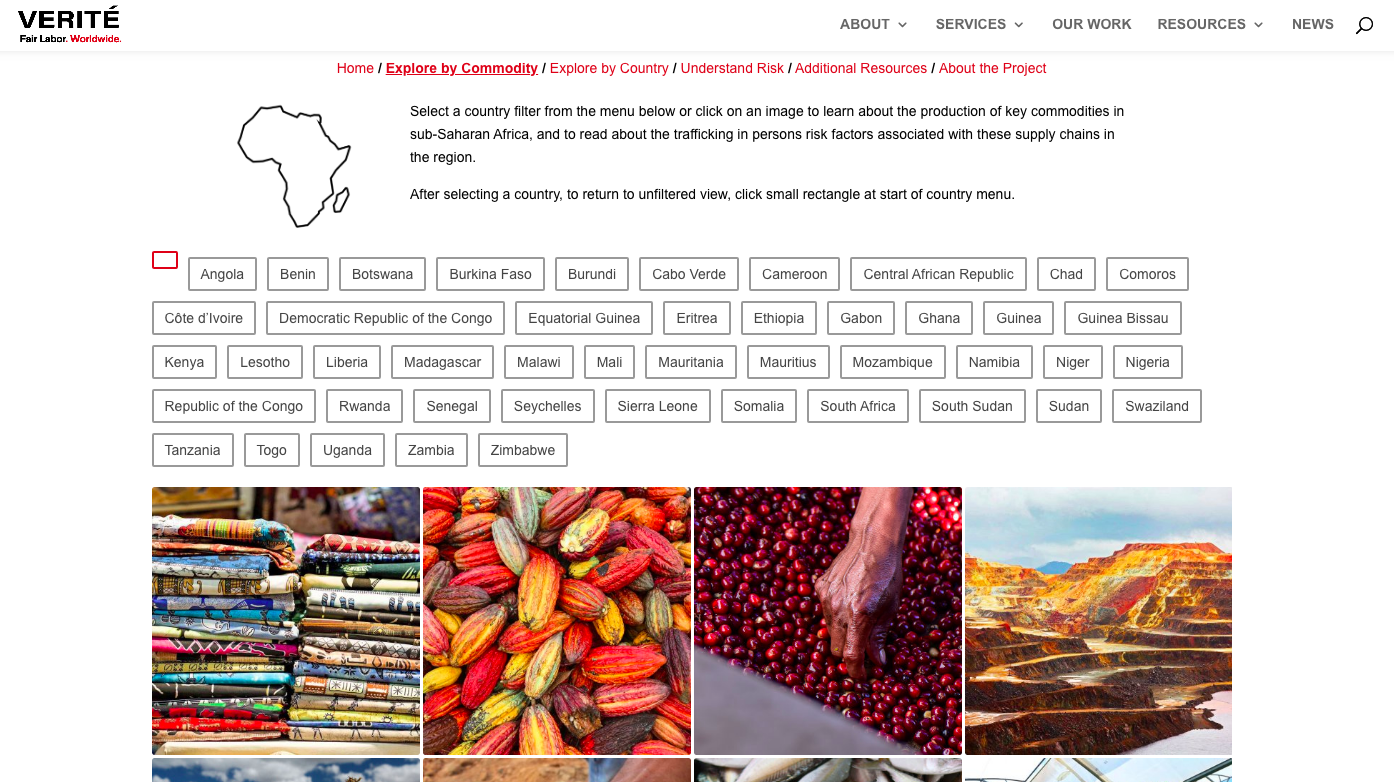Stop the Traffik App
Online ToolsA tool to enable people across the world to join the fight against human trafficking and modern slavery. child labour More information on the app can be found here. ...Read More
The sub-Saharan region of Africa has acted as a supplier of labour and raw materials to the rest of the world for centuries, often under terms that have resulted in harm to African people and nations. Corporations and governments have a responsibility to minimize the risks to human rights associated with global economic activity in Africa, including the risk of human trafficking.
The Trafficking Risk in Sub-Saharan African Supply Chains website has been created to provide users with insight into the trafficking risks associated with the operation of specific global supply chains in the region.

The core of the site consists of reports on 22 major African export commodities, and on all 49 sub-Saharan African countries. These reports provide information about industry and national characteristics relevant to trafficking risk, as well as an analysis of specific trafficking risk factors associated with each commodity and country. In addition, the site also provides guidance on understanding trafficking risk and additional resources for companies and others interested in establishing compliance systems and other programming to prevent and address trafficking risk within global supply chains.

Click here to go to the Trafficking Risk in Sub-Saharan African Supply Chains website
child labour
A tool to enable people across the world to join the fight against human trafficking and modern slavery. child labour More information on the app can be found here. ...Read More
Oyoty is a chatbot aiming to empower children to be safer online. The app runs on the child’s phone, detects threats and risks on smart devices and social networks using Artificial Intelligence (AI). Oyoty alerts the child to risks and th...Read More
This interactive site offers information on human trafficking facts and statistics. The page includes a map of human trafficking in the United States along with a statistical analysis. Further down the page the user can click on four dif...Read More
This document is not a comprehensive resource on child protection policies, but rather provides a solid introduction on developing a policy for your organization. Organizations, staff, volunteers, and visitors must be fully aware that child abuse ca...Read More